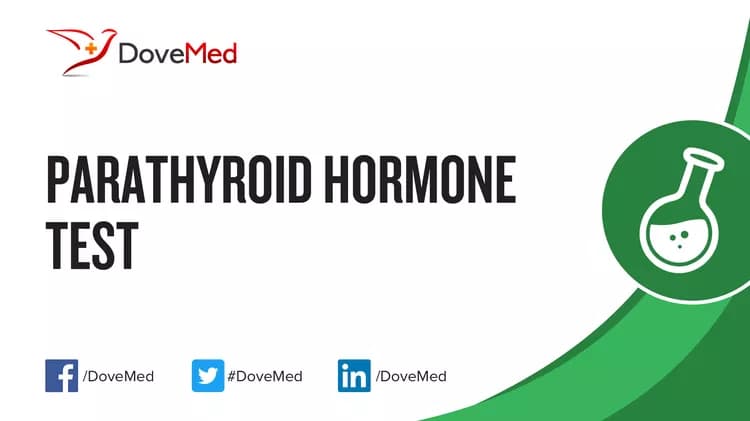What are the other Names for this Test? (Equivalent Terms)
- Immunoreactive PTH Blood Test
- Parathyroid Hormone Blood Test
- PTH Test
What is Parathyroid Hormone Test? (Background Information)
- Parathyroid hormone (PTH) stimulates the increase of blood calcium (Ca2+) levels, when they fall below the optimal requirement. It does this, by signaling the kidneys to retain Ca2+, the intestines to absorb Ca2+, and bone cells to break down the bones
- The parathyroid gland secretes the hormone PTH. This gland is located in the back of the neck, a little below the level of the larynx (Adam’s apple). The parathyroid gland surrounds the thyroid gland (hence the term “para-” meaning beyond or beside)
- PTH works in concert with several hormones to regulate Ca2+. One of these is calcitonin, which is secreted by the adjacent thyroid gland and directly opposes the effects of PTH
- The Parathyroid Hormone Test is a blood test that measures intact PTH levels in circulation
What are the Clinical Indications for performing the Parathyroid Hormone Test?
The following are clinical indicators for performing a Parathyroid Hormone Blood Test:
- Pain in the bones
- The presence of kidney stones (nephrolithiasis)
- Abdomen pain, swelling
- Confused state of the mind, fatigue
- Muscle irritability, spasms, and tingling sensations
- Abnormal heart beat (cardiac arrhythmia)
- Seizures
- Unexplained tooth problems and discoloration
In addition to the above, the following situations may warrant a PTH Test:
- During surgery, to confirm removal of the parathyroid gland
- To investigate unexplained abnormalities in blood Ca2+ readings
- To evaluate parathyroid function
How is the Specimen Collected for Parathyroid Hormone Test?
Sample required: Blood
Process: Insertion of a needle into an arm vein.
Preparation required: In some cases, fasting is required, prior to testing.
What is the Significance of the Parathyroid Hormone Test Result?
Elevated parathyroid levels may indicate:
- Primary, secondary, or tertiary hyperparathyroidism
- Pseudohyperparathyroidism
- Humoral hypercalcemia of malignancy (HHM) with advanced cancers
- Vitamin D malabsorption or deficiency
- Fluorosis
- Pseudogout
- Spinal cord trauma
- Zollinger-Ellison syndrome
- Lactation
- Pregnancy
Decreased parathyroid levels may indicate:
- Hypoparathyroidism
- Insufficient magnesium levels (hypomagnesemia)
- Nonparathyroid hypercalcemia, in the absence of kidney failure
- Chronic accumulation of immune cells and resulting tissue damage (sarcoidosis)
- Vitamin A or vitamin D intoxication
- Autoimmune or traumatic damage to the parathyroid gland
- DiGeorge syndrome
- Genetic defect in calcium-sensing receptor proteins
- The parathyroid gland has been removed, either accidentally or intentionally
The laboratory test results are NOT to be interpreted as results of a "stand-alone" test. The test results have to be interpreted after correlating with suitable clinical findings and additional supplemental tests/information. Your healthcare providers will explain the meaning of your tests results, based on the overall clinical scenario.
Additional and Relevant Useful Information:
- Certain factors may interfere with the test and these include: Milk, anticonvulsants, steroids, lithium medication, presence of parathyroid-hormone related protein, and performance of the test at inconsistent times
- PTH Testing is often performed along with calcium, phosphorus, and creatinine tests
Certain medications that you may be currently taking may influence the outcome of the test. Hence, it is important to inform your healthcare provider, the complete list of medications (including any herbal supplements) you are currently taking. This will help the healthcare provider interpret your test results more accurately and avoid unnecessary chances of a misdiagnosis.
Related Articles
Test Your Knowledge
Asked by users
Related Centers
Related Specialties
Related Physicians
Related Procedures
Related Resources
Join DoveHubs
and connect with fellow professionals


0 Comments
Please log in to post a comment.